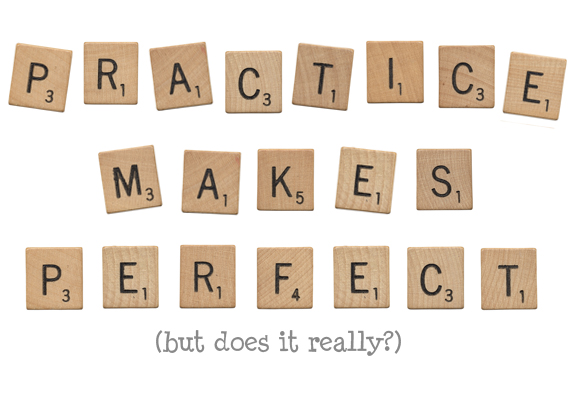
When I first started my creative business, I struggled with taking product photos. They were embarrassing—dark, unfocused, and almost every one featured harsh shadows. I hate to admit that I didn’t even edit them.
Before starting my online business, I’d only taken photos of friends and family with my simple point-and-shoot digital camera to capture memories. I knew how to turn the camera on, take pictures, delete the ones I didn’t like, and turn it off. I didn’t know much more.
I soon realized that stand-out product photos meant the difference between success and failure. They were something that couldn’t be ignored.
What did I do? I took a lot more pictures with the hope that some of them would turn out good. I learned a little bit about editing photos and edited the not-so-bad ones. Even though I was spending a lot more time on my product photos, they didn’t look anything close to the beautiful ones featured on the front page of Etsy.
After a couple weeks, something clicked. What many of us consider practice—doing something over and over in order to get better—wasn’t working. I had to come up with a different game plan. Instead of taking hundreds of pictures each day, I decided to make my own learning opportunities.
First, I read my camera manual. This wasn’t fun. In fact, I had to promise myself that I could indulge in a bubble bath that evening if I read my camera manual and tried out the new stuff I was learning. Second, I took a handful of pictures, loaded them onto my computer, and figured out what wasn’t working. I compared them to pictures on the front page of Etsy. Then, I applied what I learned and redid the photos until I felt they were comparable to those on the front page. Third, I paid for consulting with a professional photographer to get feedback on my product photos to get even better.
What I didn’t understand at the time was that this was the difference between “practice” and “deliberate practice” which makes all the difference in success.
“Deliberate practice is characterized by several elements…It is activity designed specifically to improve performance, often with a teacher’s help; it can be repeated a lot; feedback on results is continuously available; it’s highly demanding mentally, whether the activity is purely intellectual, such as chess or business-related activities, or heavily physical, such as sports; and it isn’t much fun.” –Geoff Colvin, Talent is Overrated
When you do the same thing over and over without these other elements, you don’t grow or learn very much, if at all. When I was taking pictures without examining them, I wasn’t learning anything new. When I took a really good picture, it was luck. When I started paying close attention to angles, lighting, camera settings, and backgrounds, I got much better.
I’m probably not telling you anything new. You know that if you don’t put in the effort to learn, get feedback, make changes, and try again, then you won’t grow. But, even though you know this, I bet there are areas in your business where you aren’t making time for deliberate practice.
Are you honestly putting in effort to write better product descriptions? Do you study the best product descriptions, learn what makes them work, practice writing your own, and get feedback from your target market or a coach? Are you deliberately practicing your craft? Do you push yourself on a regular basis to learn new techniques, try them out, and get feedback on them to make them even better? Do you put time into making your blog unique and something that appeals to your target market? Have you studied blog posts that attract hundreds of comments, practiced writing blog titles that get clicked and read, and picked apart your blog posts to see where you need to make improvements in your writing?
If you aren’t making time for deliberate practice, someone else is making the time. Someone else is putting forth the effort—and that person will probably be more successful than you. Have you ever caught yourself asking, “How did that person do it? If that person can do it, I should be able to, too. What makes us different?”
The answer is often deliberate practice. We want to believe that the greats have this incredible innate talent—that they were born with the talent to become the world’s greatest golfer, fiction writer, or mixed media artist. The truth is often much more simple—the world’s greatest at anything made a habit of deliberate practice.
Let’s take a look at one of the greats: Mozart. Mozart’s father had him intensively training in composition and performing at age three. He composed his first work that is regarded as a masterpiece, Piano Concerto No. 9, at the age of twenty-one. Before that time, most of his work was not original—he copied, arranged and imitated the works of others according to Geoff Colvin. That means it took about 18 years of intensive training before he created a masterpiece. It didn’t come quickly or easily to Mozart. He was amazing at his art, but he had to put in time and effort.
How can you apply all of this to your business?
- Pick something within your business. This could be product photography, writing product descriptions, blogging, sending email newsletters, your actual craft, or something else.
- Be honest with yourself about how much deliberate practice you’ve put toward this area of your business and how much you put towards it now. The greats never stop even when they’re extremely successful. If you don’t do enough of this, go to step three.
- Put together a specific plan on how you can deliberately practice. For example, if you want to get better at your craft of drawing, you could set aside one hour every day where you push yourself past your limits. You learn a new technique from a teacher, an online video, or a book. Then, you practice that technique and compare it to an artist that has mastered that technique or get feedback from a teacher. Then, you try it again. You practice this technique over and over while making adjustments each time to get better.
If you start inspecting your business in this way and do the hard work of deliberate practice, you’ll only get better and have a much better chance at reaching your goals.

